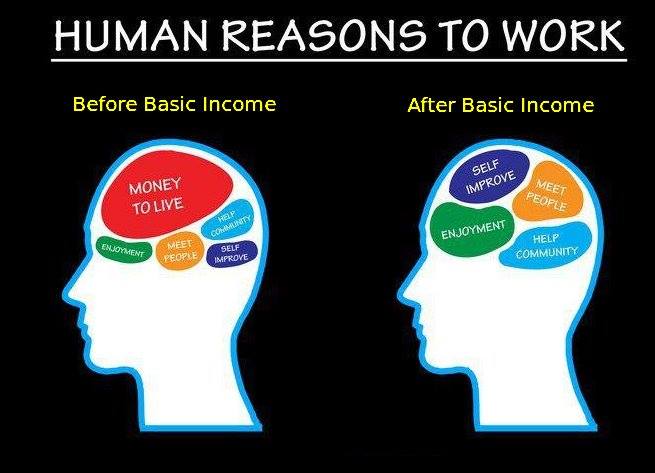(Editor’s note: This post has been updated with the launch of Finland’s experiment with guaranteed income.)
Though it hasn’t garnered a lot of international media attention, country after country across Europe is at least considering an ambitious social experiment.
From Finland to the Netherlands to Greece, officials are weighing the pros and cons of adopting on some scale a national guaranteed basic income, or have already begun testing a version of the concept.
Finland’s experiment, which began 1 January and runs through 2018, is the first mass trial of an idea that dates back to the 18th century. That concept asserts, in essence, that an “emancipatory” annual lump-sum payment sufficient to cover basic living costs is simpler and more efficient than creating a huge national welfare state. And it frees up the unemployed to consider taking jobs that pay too little without the guaranteed income stipend.
Finland has just begun paying a random group of 2,000 unemployed people 560 euros per month. The new trail is different from the country’s current social-welfare system in that even if the people in the trial find work, they’ll still keep getting the money. Though The Conversation points out that the average private sector income in Finland is about 3,500 euros per month, making the basic income for unemployed just 16 percent of the average salary. Not much of an incentive to stay on the dole. But the money could make taking a minimum-wage job less financially painful.
This isn’t about sovereign generosity as in Norway, Brunei, the UAE or Saudi Arabia, a spill-over of oil wealth. (Norway’s sovereign wealth fund famously made every Norwegian citizen a “krone millionaire” in 2014 when the country’s oil revenues went through the roof.)
Instituting national basic incomes in Europe is about two issues, according to the Cato Institute, a Libertarian think tank in Washington, D.C.:
• Finding a less costly, more efficient and less intrusive substitute for the classic European welfare state and all the bureaucracy that entails. In Finland, the proposal is meant to boost the economy by enticing people into taking low-paying jobs they couldn’t afford to take otherwise in a nation with 9-percent unemployment.
• Figuring out how to cope with the increasing replacement of human labor with automation as societies grow even more technologically advanced.
Michael Tanner, a Senior Fellow at Cato, wrote last May in “The Pros and Cons of a Guaranteed National Income”:
The term “guaranteed national income” is a catchall phrase that encompasses a variety of approaches, some universal in nature, some more targeted, including cash grants,
tax credits, and wage supplements. Some are designed to replace the current welfare state, and others are designed to work in conjunction with it.
To be sure, welfare states aren’t cheap. In 2014, the United States spent $15,187 for every poor man, woman, and child in this country, Tanner wrote.
For a typical poor family of three, that totals $45,562. Combined with state and local spending, the government spent $20,835 for every poor person in America, and $62,585 per poor family of three, by Tanner’s calculations.
By comparison, the poverty line for that family is just $19,055! So, let’s say Finland gives that 560 euros to every citizen – all 5.5 million of them – per month would cost 6,720 euros ($7,121) per person per year … a huge bargain compared to the U.S. model.
That aside, the core question is about human nature: What will people do if they no longer have work to survive? That’s what nearly every country in Europe is trying to figure out.
 Charles Hughes, also a Cato Senior Fellow, has the most objective take on Finland’s experiment, “Finland Breaks New Ground with Basic Income Experiment.” Finland is moving forward with “one of the most extensive and rigorous basic income experiments in decades,” Hughes wrote in late 2015. So we called him to get his take.
Charles Hughes, also a Cato Senior Fellow, has the most objective take on Finland’s experiment, “Finland Breaks New Ground with Basic Income Experiment.” Finland is moving forward with “one of the most extensive and rigorous basic income experiments in decades,” Hughes wrote in late 2015. So we called him to get his take.
My point to Hughes was, “Couldn’t a guaranteed basic income act as a mega-stimulus, freeing up the more creative and ambitious among us to be entrepreneurs and go off and create new world-changing businesses?”
Or as Y Combinator’s Sam Altman put it on Freakonomics, “Maybe 90 percent of people will go smoke pot and play video games But if 10 percent of the people go create new products and services and new wealth, that’s still a huge net win.”
“I guess the best way to put it is, we’re sympathetically skeptical,” Hughes replied. “There just isn’t empirical data on how people will behave.”
Academics and researchers simply don’t have a study with statistically significant data documenting the effect on people of a national basic income even at the city level, he said. “That’s why these experiments in Finland and Utrecht are so useful. There’s a paucity of data,” Hughes added.
That’s about to change dramatically:
• Basic income experiments will take place during 2017 in the Netherlands, including Utrecht, Tilburg, Nijmegen, Wageningen and Groningen.
The Atlantic Magazine has some of the better coverage of the Utrecht experiment, “Know What Works,” which begins this month. KWW will give at total of 250 people in six groups money under different terms and expectations.
- One group will simply get 960 euros per month without any work obligations, according to the Atlantic.
- A second group will get the 960 euros plus an additional 150 euros at the end of the month if they provide volunteer services.
- A third group will get the 150 euro volunteer bonus at the beginning of the month … and will have to return it if they don’t volunteer.
- A fourth group of welfare recipients will simply keep their current benefits without a work requirement.
- Another is made up of welfare recipients who expressed interest in receiving the 960 euros but will continue to receive only standard benefits.
- Finally, there is a control group of welfare recipients who wanted to keep receiving their usual benefits.
• Even with EU-dictated austerity, Greece started experimenting with guaranteed basic income. In 2014, the government launched a six-month pilot program providing flat cash grants for middle- and low-income citizens. Greeks living in 13 municipalities meeting certain income criteria started getting 200 euros for a single person, plus an additional 100 per additional adult in the family and 50 euros per child. Greek politicians said the program could eventually be expanded nationwide, covering about 1.2 million of the nation’s poorest out of a total population of 10 million.
• In Germany, a private, crowd-funded experiment started in 2014 called Mein Grundeinkommen (My Basic Income). Berlin-based entrepreneur Michael Bohmeyer raised the money to pay 26 people so far about $1,100 a month to do whatever they wish. Bohmeyer’s theory, according to a Los Angeles Times post, is that emancipatory incomes will free up enormous amounts of creativity. So far, almost all the people selected have made positive changes in their lives, including quitting jobs they hated and going back to college, according to the Times.
• In June 2016, Swiss voters shot down by a huge margin a proposal to guarantee every citizen a yearly income of 25,000 Swiss francs. Which is a lot of money!
 If you spend enough time poring through the literature, you’ll be surprised to the extent left and right agree on national incomes. The Cato Institute, while Libertarian, is more aligned with the American conservative movement … though not always. In Europe, it tends to be the left that espouses basic national incomes.
If you spend enough time poring through the literature, you’ll be surprised to the extent left and right agree on national incomes. The Cato Institute, while Libertarian, is more aligned with the American conservative movement … though not always. In Europe, it tends to be the left that espouses basic national incomes.
One argument in favor of guaranteed minimum national incomes is the massive explosion of automation in the digital era. A 2013 study from Oxford’s Martin School estimated that 47 percent of today’s jobs are at risk of being replaced by machines within 20 years. A point Elon Musk has made repeatedly in the past few months.
Giving people a basic income could help reshape work forces, shifting workers to something more productive than manual labor … “more attuned to the future of how work will look,” Cato’s Hughes said. A guaranteed income also has “some appeal” in that such a policy might reduce government paternalism … the temptation for governments to shape behavior through welfare contributions, he said.
Such an income could theoretically move people away from what Hughes calls “poverty traps” of having to deal with – and conform to – the requirements of multiple welfare agencies and toward using that time to rationally rearrange their lives to become more productive. “To mainstream people into economic life,” as he put it.
A small Canadian experiment back in the 1970s indicates that’s a possible income. The people of the small town of Dauphin were given a stipend from 1974 to 1979, and working hours decreased … because men spent more time in school and women took longer maternity leaves.
Was the Dauphin experiment a harbinger for the future?
“There are a lot of questions without a lot of answers,” Hughes said.
Co-CEO of Dispatches Europe. A former military reporter, I'm a serial expat who has lived in France, Turkey, Germany and the Netherlands.














